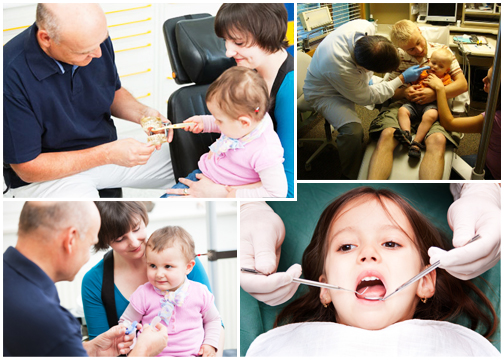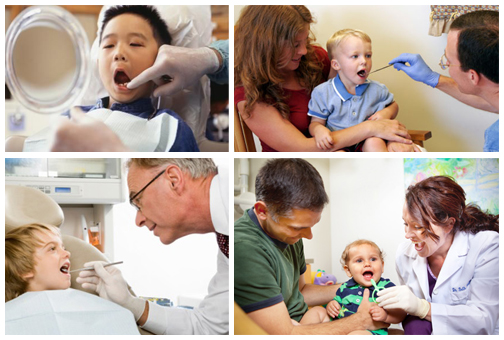Did you know that Dentists are encouraging parents to pay attention to your child’s dental care even before the baby’s first tooth appears? While they may not be visible, teeth actually begin to form in the second trimester of pregnancy. Essentially, at birth, the baby has 20 primary teeth, which are not at all visible until the child turns a year old or so. Well, most parents are having a really tough time as to when should they bring their child to the dentist.
The first dental visit is usually spent making the child get used to the dental chair. Alongside this, parents are educated about how to care for their baby’s teeth. Here’s what parents should know basically about their child’s first visit to the dentist. Timing may vary as per dentist’s judgment and the child’s overall health condition.
- When to Visit the Dentist. Most dentists would recommend that the child is brought for his first dental appointment within about six months before the first tooth appears. In some rare cases, natal teeth are present during birth and some babies show teeth eruption as early as 2- to 3 months. Essentially, as early as the child shows teeth eruption, the baby must be brought to a dental office for a primary dental check-up.
- Which Dentist to Visit. It’s common that parents will bring their children to their (the parents) own dentist. He should be the same dentist that took care of the dental check-ups of the child’s parents. And this should be a good choice since the dentist will have more or less a deeper knowledge of the family’s dental history. If in case the family moved to a new community and had to find a new dentist for the children, it is always a good start to bring the child to a pediatric dentist. The pediatric dentists have special training in dealing with children and caring for their oral health. In addition, a pediatric dentist will be able to psyche the child if showing any signs of anxiety or fear of the dentist. If you’re looking for a dental office in Mississauga, you can check here.
- What to Expect from the First Visit. It’s basically a meet and greet appointment where the dentist will check the mouth of the child looking for any decay, gum problems, jaw and bite. The dentist will also discuss with the parents about good oral hygiene habits. The dentist will give the parents the chance to throw in their questions about thumb sucking, toddler teething, tooth-friendly foods, or just about anything that pertains to the oral health of the child.
- How Often to Visit. Based on the initial dental checkup results, the dentist will advise on the next visit. The standard practice sets dental visits at twice a year provided there are no major and serious dental problems.
For children who transitioned from the bottle to cup and don’t have snacks or drinks in the middle of the night, their visit to the dentist can be delayed until their 2nd birthday. When your child turns 4 or 6, the dentist will most likely be taking the first set of X-rays to check for cavities or decay lurking between the teeth. Between the ages 6 and 12, when baby teeth are replaced by the permanent teeth, prevention of oral problems will be the main concern of every dental check-up. By the time the child turns 7 years old, the dentist will likely suggest an orthodontic evaluation to determine if the child’s set of teeth would need braces.
In order for the above check-up scenarios to take place, without the children hesitating to go to the dentist, it is important for parents to make the child’s first visit to the dentist as good an experience as possible. When the child gets comfortable with the dental environment – even with dental staff with their masks on, the succeeding visits will become just as natural as going to school, and the child will not be scared and alarmed. If you want some tips in dealing with dental phobia, you can check this article.
- St. Lawrence Dentistry Looks Forward To St. Patrick’s Day! - March 12, 2025
- Understanding Dental X-Rays and Radiation: What You Should Know - January 13, 2025
- Happy New Year from St. Lawrence Dentistry! - December 30, 2024











